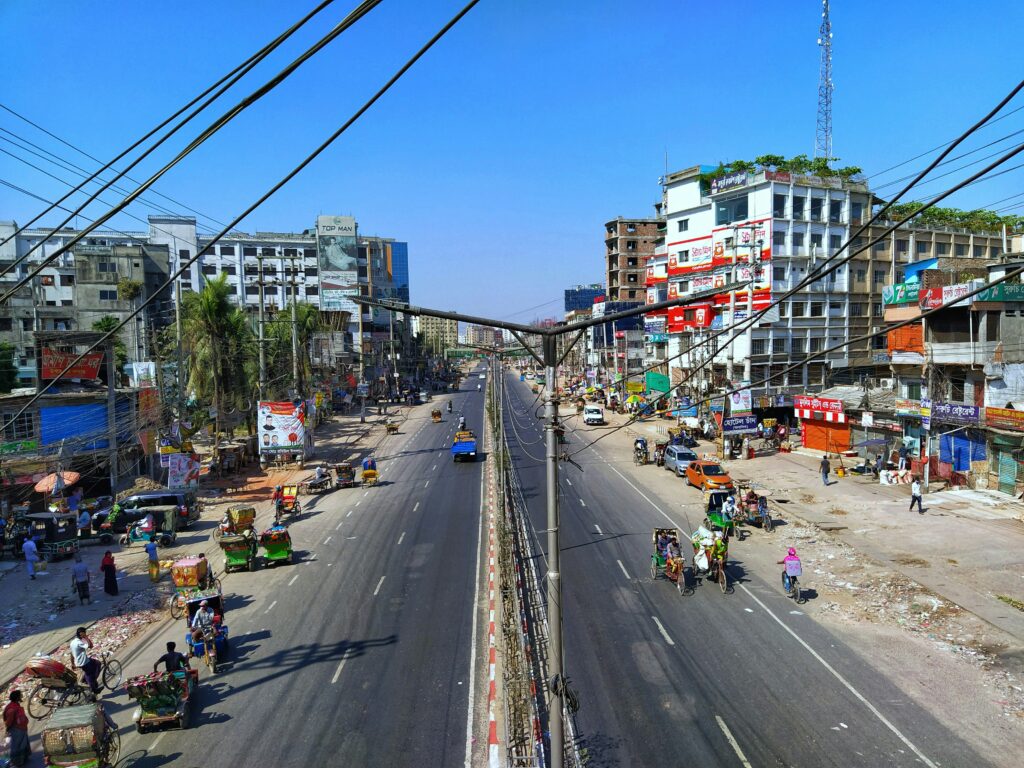
Introduction
The foreign reserves of Bangladesh play a crucial role in maintaining the country’s economic stability. Amid recent political turmoil and nationwide protests, non-resident Bangladeshis (NRBs) are considering halting remittances in support of the movement. This article delves into the potential economic consequences of such an action, providing data-driven insights into its impact on Bangladesh’s foreign reserves.
Current Political Situation in Bangladesh
Why Deadly Protests Are Roiling Bangladesh
Violent clashes have erupted between the police and students protesting a quota system used to fill coveted civil service jobs. Tens of thousands of Bangladeshi citizens have taken to the streets, joining university students demanding an overhaul of how government jobs are distributed.
The demonstrations were initially peaceful, but Prime Minister Sheikh Hasina deployed the police and paramilitary forces against the students, a crackdown that set off broader public anger against the leader. The protests became increasingly violent as more students and other citizens joined, clashing with pro-government supporters and the authorities. Dozens of people, mostly students, are known to have been killed, and hundreds injured. The protesters and some local news media say the death toll is far higher.
The students have been agitating for weeks about a quota system for government jobs that benefit certain groups, including the families of those who fought for independence from Pakistan. Anisul Huq, the law minister, said on Thursday that the government favored overhauling the quota system and would work with student leaders to find a resolution, but added that the Supreme Court would make the final decision. The protesters, who have begun counterattacks on the police, said they would not negotiate with the government. On Thursday, they targeted the national television station headquarters, setting fire to it.
Students at the University of Dhaka, the country’s top institution, started the demonstrations on July 1, and they later spread to other elite universities. The protests turned violent when members of the pro-quota student wing of the governing party, the Awami League, began attacking the protesters. Besides sending the police and paramilitaries into the streets, including an antiterrorism unit, the government has locked down schools and colleges. Officials said they had slowed down internet connectivity to stop the spread of rumors and protect citizens, making it harder for protesters to organize and make plans via social media platforms. The police have used rubber bullets, sound grenades, and tear gas to disperse crowds, but the protests continue.

Historical Context of the Quota System
The quota system was introduced in 1972 by Sheikh Mujibur Rahman, who led his country’s fight for independence from Pakistan in 1971. The quota system ensured that the state would take care of the descendants of those considered freedom fighters. Today, a total of 56 percent of government jobs are reserved, a majority of which are for the kin of those fighters. Smaller quotas were later introduced for women, minorities, and those with disabilities. Protesting students are also calling for the quotas for women and people from certain districts of Bangladesh to be removed, but they are in favor of reserving jobs for disabled people and minorities.
Political Implications
Pro-quota groups are supporters of Ms. Hasina, who won her fourth straight election in January. The student wing of her party also supports the quotas. After some of them attacked the protesters this month, the Bangladesh Nationalist Party, the main opposition to Ms. Hasina’s party, began calling for more protesters to get involved. On July 10, the Supreme Court paused the reinstatement of the quotas for four weeks because of the protests.
Importance of Remittances to Bangladesh’s Economy
Economic Contribution
Remittances constitute about 6-7% of Bangladesh’s GDP. In 2022, remittances totaled approximately $21.03 billion, providing a critical lifeline for millions of households. These funds are used for essential expenses such as food, education, healthcare, and housing, directly impacting the quality of life for recipients.
Foreign Reserves
Regular inflows of remittances are crucial for maintaining and increasing foreign reserves. As of mid-2023, Bangladesh’s gross foreign reserves stood at around $21 billion, but if central bank liabilities are considered, the net reserves would be less than $18 billion. According to Zahid Hussain, a former lead economist of the World Bank’s Dhaka office, “If the central bank’s liabilities are taken into account, then the net foreign currency reserve would be less than $18 billion.” He added that the situation is a matter of concern as Bangladesh Bank is selling more than $1 billion worth of US dollars each month. The country’s foreign currency expenditure against income has remained at a $1 billion deficit for the past 24 months.
Household Impact
Remittances are a lifeline for many families in Bangladesh. For instance, rural households often depend on funds sent by family members working abroad to purchase agricultural inputs such as seeds and fertilizers. In urban areas, remittances are used to cover education fees and healthcare costs, directly impacting the well-being and future prospects of these families.
What the theory predicts
- A balance of payments crisis occurs when persistent balance of payments deficits bring a country close to running out of foreign exchange reserves. Remittance prevented persistent balance of payment deficits for Bangladesh all the time.
- BoP crises can be resolved by (a) borrowing foreign reserves, (b) devaluation of the currency, or (c) moving to a floating exchange rate. Option A and C is not feasible for Bangladesh given the current situation. So the devaluation of currency is imminent. Already with the contractionary monetary policy of FED, BDT significantly depreciated against dollar. More devaluation will lead import dependent industries to shut down.
- In the midst of a BoP crisis, investors often purchase assets abroad in anticipation of an imminent currency devaluation or depreciation. This is known as capital flight.
- Capital flight works to exacerbate the BoP crisis because it results in a more rapid depletion of foreign exchange reserves and makes the crisis more likely to occur.
Historical Analysis of Remittances and Foreign Reserves
Trends Over the Years
Analyzing the past decade, remittance inflows have shown a steady increase, growing from $12.84 billion in 2010 to $21.03 billion in 2022. This growth has paralleled the rise in Bangladesh’s foreign reserves, which peaked at $48 billion in August 2021 but have since fallen to around $21 billion.
Crisis Periods
During the global financial crisis of 2008-2009, many countries experienced a sharp decline in remittance inflows. However, Bangladesh managed to sustain a relatively stable level of remittances, which helped cushion the economic impact and stabilize foreign reserves.
Comparative Analysis
Countries such as the Philippines and India, which also rely heavily on remittances, have faced similar challenges. In 2020, the Philippines experienced a 0.8% drop in remittances due to the COVID-19 pandemic, impacting its foreign reserves. India, on the other hand, saw a 10% increase in remittances in the same year, helping to bolster its reserves during a challenging economic period.
Potential Impact of Halting Remittances
Foreign Reserve Depletion
If NRBs cease sending remittances, Bangladesh could see a rapid depletion of its foreign reserves. A 50% reduction in remittances could lead to a loss of around $10 billion annually, significantly shrinking the reserves. Given that the country’s net reserves are already less than $18 billion, this reduction could bring reserves down to critically low levels.
Currency Depreciation
With reduced foreign reserves, the Bangladeshi Taka would likely depreciate. This could result in higher import costs, driving up inflation rates. For instance, a 10% depreciation of the Taka could increase the cost of imports by $4 billion annually. The central bank has been selling over $1 billion worth of US dollars each month to support the Taka, but this strategy may become unsustainable with declining reserves.
Economic Slowdown
Lower remittances would reduce consumer spending, particularly in rural areas where these funds are a primary source of income. This slowdown in spending could lead to a contraction in economic growth, with GDP potentially decreasing by 1-2% annually. Additionally, the country’s foreign currency expenditure against income has remained at a $1 billion deficit for the past 24 months, exacerbating the economic strain.
Sectoral Impact
- Agriculture: Farmers reliant on remittances for purchasing inputs would face difficulties, leading to lower agricultural productivity.
- Manufacturing: Small and medium enterprises (SMEs) that depend on remittance flows for capital would struggle to maintain operations.
- Services: The services sector, particularly education and healthcare, would see reduced demand as households cut back on non-essential expenditures.
Government Measures and Recommendations
Policy Interventions
The government needs to explore policy measures to mitigate the impact of reduced remittances. This could include providing financial support to affected households and businesses, and implementing policies to encourage domestic investment.
Engagement with NRBs
Strategies to engage non-resident Bangladeshis and encourage continued remittance flows, even amid political unrest, are crucial. This could involve diplomatic efforts to address NRBs’ concerns and ensure their financial contributions are used effectively.
Alternative Sources
Exploring alternative sources of foreign reserves, such as increasing exports and attracting foreign direct investment, could help reduce reliance on remittances. Diversifying the economy and strengthening other sectors could provide a buffer against potential remittance declines.
Conclusion
The potential cessation of remittances by non-resident Bangladeshis poses a severe risk to the economic stability of Bangladesh. It is imperative for the government to take proactive measures to address the situation and maintain economic resilience. The impact on households, businesses, and the overall economy highlights the importance of remittance flows in sustaining Bangladesh’s economic growth and stability.